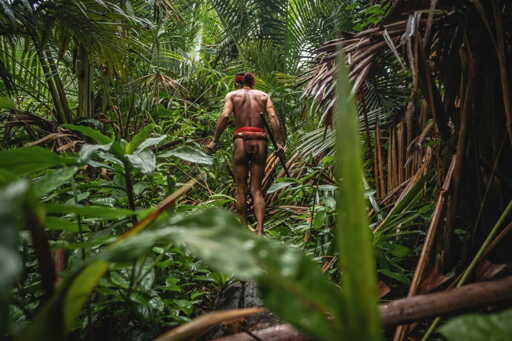Off the western coast of Sumatra, the Mentawai Islands rise from the Indian Ocean in a patchwork of emerald forests and winding rivers. The canopy shelters endemic macaques and gibbons, hornbills and orchids, while coastal villages still echo with rituals that tie people to the land and sea. Among the younger generation of Indigenous Mentawai, an ancestral belief system known as Arat Sabulungan continues to influence how forests are understood and used. The cosmology teaches that every tree, river and animal is alive with spirits whose balance must be honored. Although the influence of world religions is eroding these beliefs, researchers have found that Indigenous youths are balancing the two. Young islanders who grow up attending church services or mosque prayers still join their elders in ritual clearings, offering chants and tokens before cutting trees or casting fishing nets. “Mentawai youth today reinterpret their ancestral heritage in diverse ways,” researcher Dwi Wahyuni from Imam Bonjol State Islamic University in Padang, on the Sumatran mainland, told Mongabay. This practice remains central to their identity — but it is also under strain. Logging, modernization and shifting values test how faithfully this balance and the traditional beliefs are carried forward. In a recently published study, Dwi and colleagues from Imam Bonjol set out to understand this tension. Conducted in five villages on the Mentawai islands of Siberut and Sipora, the ethnographic work examined how Mentawai youth are blending Arat Sabulungan with Christianity and Islam, and what this means for both culture and conservation.…This article was originally published on Mongabay
From Conservation news via this RSS feed


